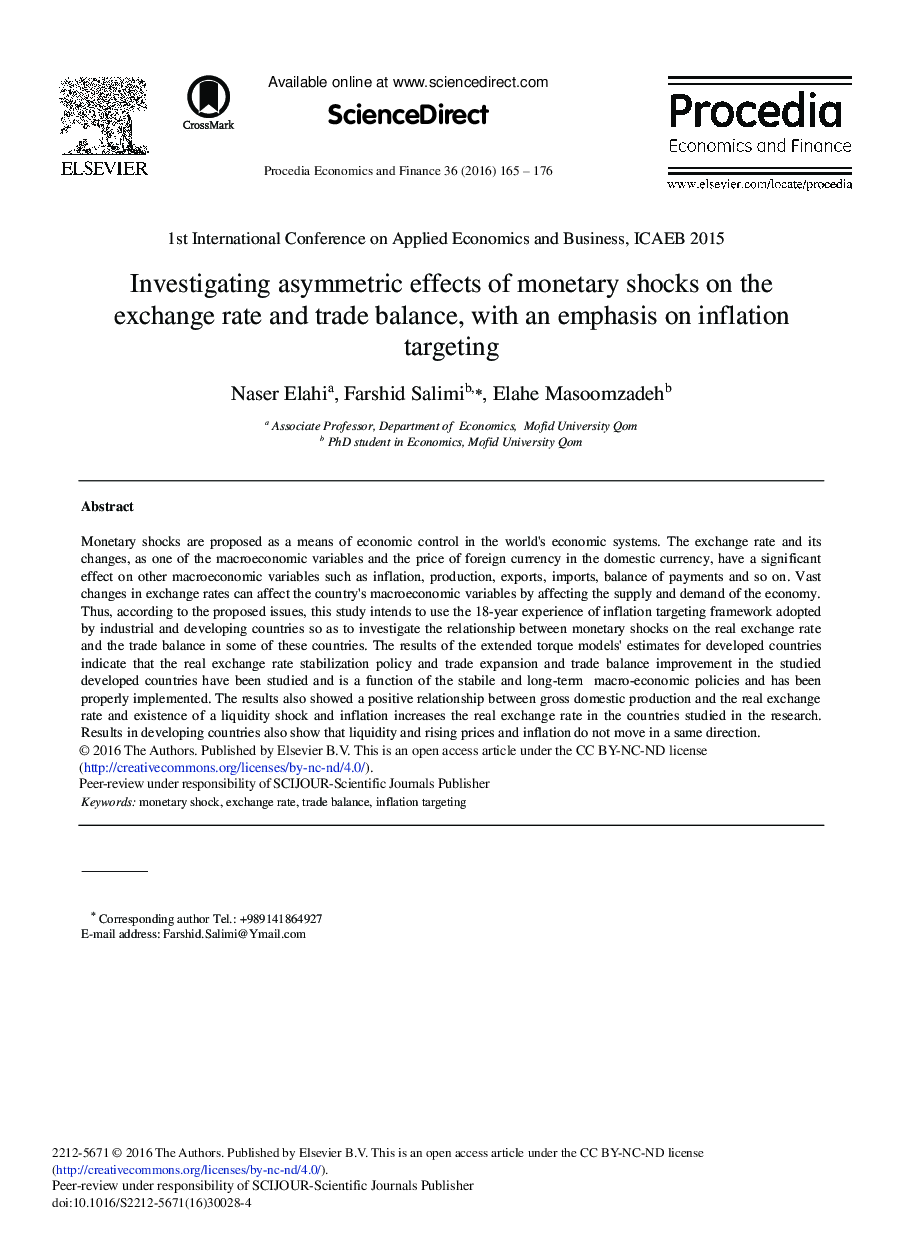| Article ID | Journal | Published Year | Pages | File Type |
|---|---|---|---|---|
| 980685 | Procedia Economics and Finance | 2016 | 12 Pages |
Monetary shocks are proposed as a means of economic control in the world's economic systems. The exchange rate and its changes, as one of the macroeconomic variables and the price of foreign currency in the domestic currency, have a significant effect on other macroeconomic variables such as inflation, production, exports, imports, balance of payments and so on. Vast changes in exchange rates can affect the country's macroeconomic variables by affecting the supply and demand of the economy. Thus, according to the proposed issues, this study intends to use the 18-year experience of inflation targeting framework adopted by industrial and developing countries so as to investigate the relationship between monetary shocks on the real exchange rate and the trade balance in some of these countries. The results of the extended torque models’ estimates for developed countries indicate that the real exchange rate stabilization policy and trade expansion and trade balance improvement in the studied developed countries have been studied and is a function of the stabile and long-term macro-economic policies and has been properly implemented. The results also showed a positive relationship between gross domestic production and the real exchange rate and existence of a liquidity shock and inflation increases the real exchange rate in the countries studied in the research. Results in developing countries also show that liquidity and rising prices and inflation do not move in a same direction.
